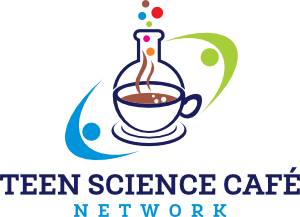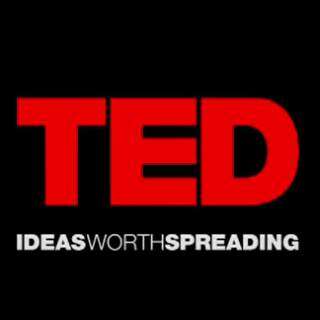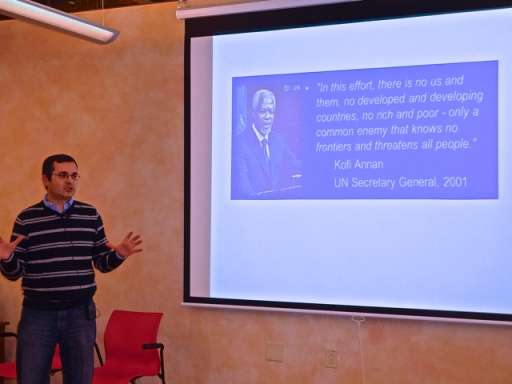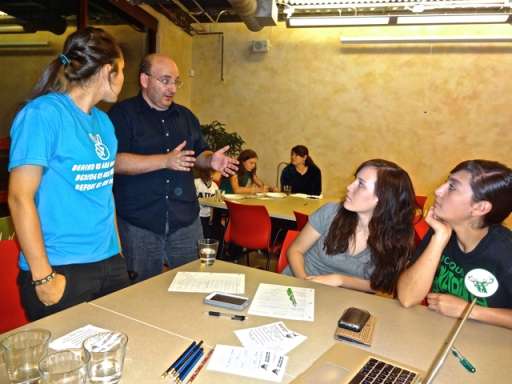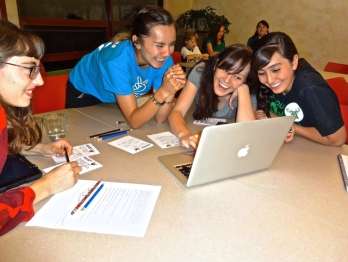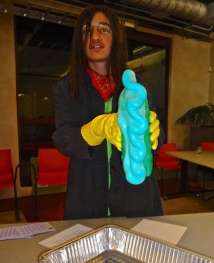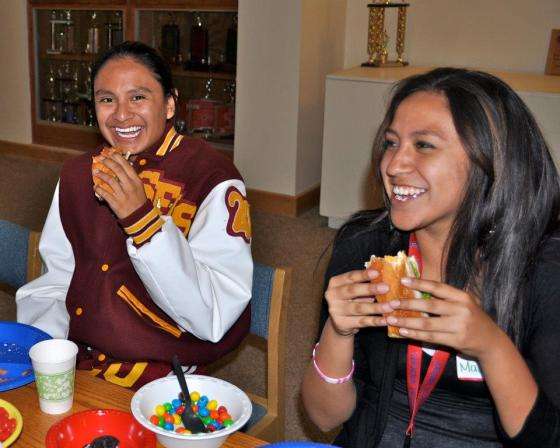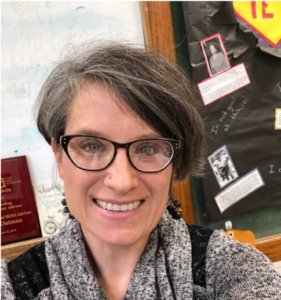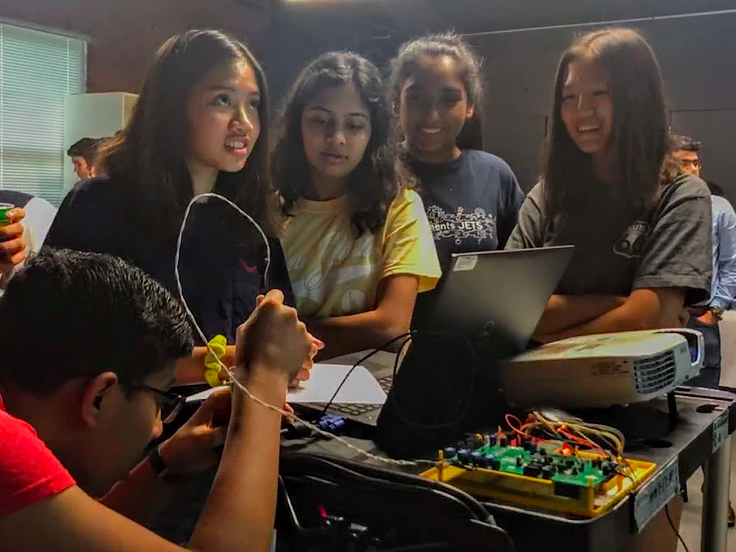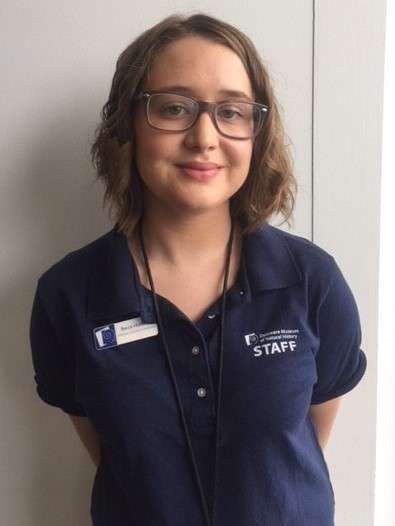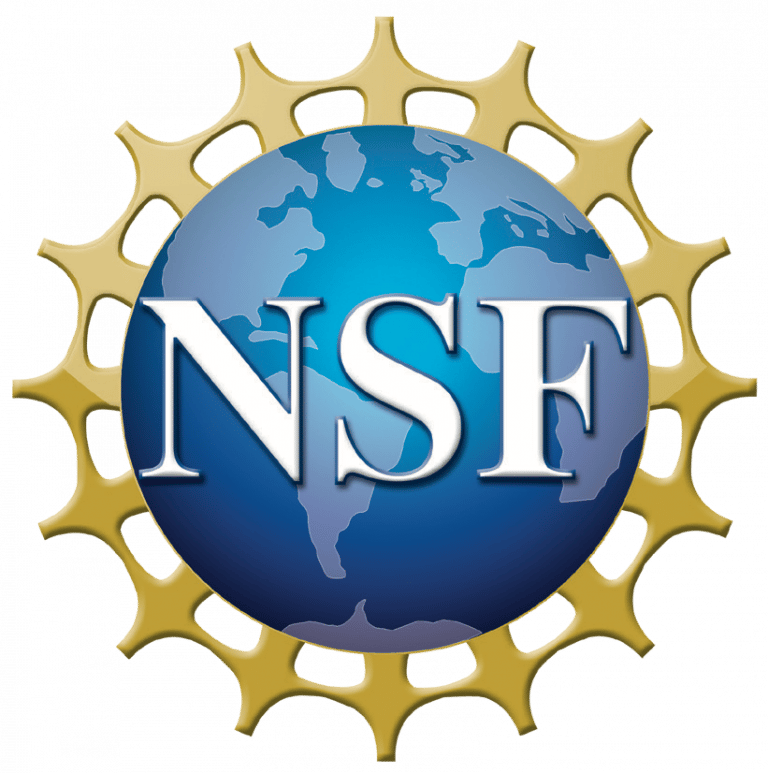Reposted from User Generated Education Original title: TED for Teens or Ted-Ed Talks As They Should Be
If I were to subtitle this blog post, it would be something like “reclaiming science education” or “making TED talks palatable and very tasty for young people.”
Cafe Scientifique
I recently became the Cafe Scientifique coordinator for Santa Fe, NM. I realized after the first session that this program is what TED talks could or should be especially for teens and tweens. The background and description of Cafe Scientifique …
Science Café programs engage scientists and the public in conversation on interesting science topics in a highly social setting. The model was established in England, and its popularity led to rapid spread in various forms throughout the world. It has proven very effective in engaging people from all walks of life with science and scientists In 2007, Science Education Solutions, with a grant from the National Science Foundation, began an experiment to see if the model could be adapted to appeal to high school teenagers. The program, Café Scientifique New Mexico, has proven highly popular with teens in four towns of diverse character in northern New Mexico for the same reason as adult programs: the blend of engaging with scientists informally on interesting science topics and the high degree of social interaction. Café Scientifique New Mexico provides teens a new perspective on the nature of science and a picture of scientists as real people leading interesting lives. The program has proven to be a rich—and fun!—complement to the science they learn in the classroom.
The Cafes contain the following elements:
- Scientist Talk – about 20 minutes
- Teen Interview of the Scientist
- Q & A with the Scientist
- Hands-On Activity
- Food
Scientist Talk
Real scientists are invited to do the talks. Real in this case means that they are practicing scientists working in labs, research settings, etc. Here are 10 Tips for Finding Great Teen Café Presenters and a blog post Preparing Scientists for a Teen Café.
Once selected, scientists are prepped about how to give a talk to teens. They are given some guidelines – see Cafe Scientifique New Mexico Guidelines for Presenters. Scientist presenters are also asked to give a dry run with the teen leaders and program organizers who offer feedback about how to better present to the teens.
The Café Scientifique model has proven to be effective for communicating science to a high school teen audience. Their process for achieving effective science communication between scientist-presenters and teens focuses on overcoming the “information deficit” mode of presentation that most scientists are trained for. Their coaching stresses that effective science communication requires engagement on a personal level that meets the audience where it is in terms of both prior knowledge and social context, while making connections to the teens’ daily lives. (http://tappn58.sg-host.com/resources/science-communication-in-a-cafe-scientifique-for-high-school-teens/)
Teen Interview of the Scientist
One of the teen leaders (for more information about the Cafe Scientifique teen leaders, see http://cafenm.org/ylt.html) often interviews the scientist. They develop their own questions and use those to interview the scientist.
Example Interviews:
Phillip, a high school sophomore at the Santa Fe Indian School, interviews Nina Lanza, a geologist working on the Mars Curiosity Mission.
Youth leaders conducted an interview with Dr Morton’s pathway to becoming a neuroscientist and zombie expert. Listen to a lively interview of Dr. Russell Morton, neuroscientist and zombie expert: http://cafenm.org/downloads/podcasts/Dr_Russell_Morton_Interview.m4a.
Q & A with the Scientist
The teens are encouraged to ask questions of the scientist. Some of the scientist presenters ask questions during their presentation, but time is always provided at the end of the talk for the participating teens to ask questions of the scientist. Many of the scientists also engage in more informal Q & A sessions following the more formal presentation.
Hands-On Activity
Typically as a follow-up to the talk (although sometimes it is done as an introduction to the talks), teens engage in some hands-on activities that support the concepts presented by the scientist. A sampling of these activities can be found at http://tappn58.sg-host.com/resources/
Food
To increase the social nature, food is provided with time given for socializing and eating.
Past Cafes and Scientists
- Past Cafes – http://cafenm.org/archive.html
- Past Cafe Scientists – http://cafenm.org/scientist.html
Developmental Appropriate for Teens
The problem of using guest speakers or videos like TED and Khan Academy is that they ask the teens-students to be passive recipients of content. This often is not the best method for learning especially for today’s learners who are used to grabbing content from online venues whenever they choose. The Cafes are more appropriate for teens (and many adults) because:
- The talk is limited to 20 minutes to lecture.
- The slides developed by the scientists are visual heavy and slide light.
- The teens are encouraged to develop and ask questions of the scientists.
- Hands-on, multi-sensory activities are used to support the science concepts.
- Food and interactive activities encourage socializing – a huge need and desire of teens.
Another Model: MIT Blossoms
Another model for using scientist talks with hands-on interactives to engage and immerse students in science is the MIT Blossoms.
The BLOSSOMS Video Library anytime to browse and download lessons to use in your classroom. Every lesson is a complete resource that includes video segments, a teacher’s guide, downloadable hand-outs and a list of additional online resources relevant to the topic. We carefully craft each BLOSSOMS lesson to make your classroom come alive. Each 50-minute lesson builds on math and science fundamentals by relating abstract concepts to the real world. The lessons intersperse video instruction with planned exercises that engage students in problem solving and critical thinking, helping students build the kind of gut knowledge that comes from hands-on experience. http://blossoms.mit.edu/about
